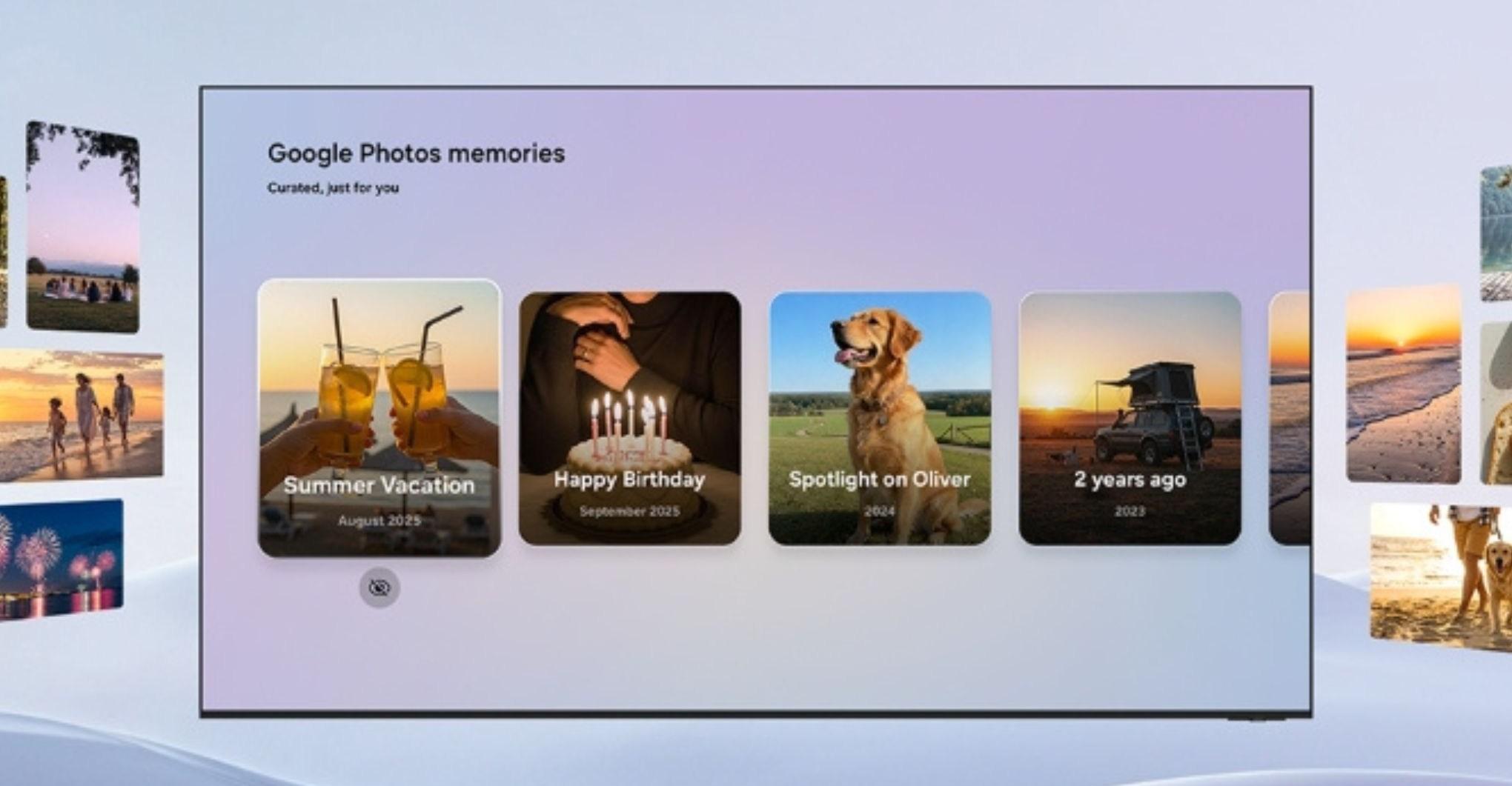Any flagship pair of headphones or earbuds you buy nowadays is going to be very, very good. Noise cancellation has grown more impressive than ever, and Bluetooth codecs like LDAC and AptX Adaptive have led to meaningful upticks in audio quality. But there’s always room for our tech to get better, and particularly in the realm of wireless audio, we’re really pushing up against the limits of what Bluetooth can deliver.
- Home
- Technology
- News
Qualcomm turns to Wi-Fi to take wireless earbuds and headphones to the next level
Qualcomm’s new audio chips, the S7 and S7 Pro, promise better, smarter noise cancellation. And your earbuds will play music over Wi-Fi even when your phone isn’t around.


That’s been true for some time, and Qualcomm believes it has come up with a solution: beginning with its next Snapdragon Sound platform, the company plans to rely on Wi-Fi, in addition to Bluetooth, to unshackle the next wave of headphones and earbuds from Bluetooth’s typical limitations. If the company’s promises bear out, you won’t have to worry about staying within 20 feet of your phone or laptop anymore. And people with a good ear will be able to enjoy truly lossless music playback more frequently.
Today, Qualcomm’s announcing the S7 and S7 Pro, the platforms that third-party manufacturers will include in earbuds, headphones, and speakers starting next year. Current Snapdragon Sound partners include Audio-Technica, Bose, Edifier, Fiio, Jabra, LG, Master & Dynamic, Shure, and other brands — so you can imagine that many of them will be integrating the S7-series silicon into their future audio gadgets.
Like the company’s latest Snapdragon hardware for phones, Qualcomm is highlighting significant increases in compute power, memory, AI capabilities, and more. The ANC from the S7 and S7 Pro is said to be more powerful and more intelligent, adapting to let important outside sounds through whenever they’re detected. As Qualcomm’s Dino Bekis, vice president and general manager of wearables and mixed signal solutions, explained to me, you could be riding a bike and listening to an audiobook. As a truck passes, your earbuds will engage transparency mode at just the right volume level to keep you aware of your surroundings without drowning out your entertainment. (This sounds a lot like Apple’s Adaptive Audio mode on the AirPods Pro.) Bekis told me the new chips also deliver better voice recognition to help products single out your voice from those around you.
But to me, those feel like the advancements you’d expect. Things get more fun when it comes to the new micro-power Wi-Fi support that’s built into the higher-end S7 Pro. “It will help your device use the best of Bluetooth and the best of Wi-Fi to deliver groundbreaking new user experiences even for earbuds,” Bekis said. Those experiences include 192kHz lossless audio delivered over Wi-Fi — in a way that supposedly won’t decimate battery life for earbuds and the tiny batteries inside them. To do this, the S7 Pro leverages what Qualcomm calls its Expanded Personal Area Network (XPAN) technology.
Here’s how Bekis summed it up to me:
Today we can deliver 24-bit 48kHz audio over Bluetooth using AptX Adaptive as part of Snapdragon Sound. It’s not lossless. It’s far from lossless. It’s a lossy music stream. We can’t do lossless at 24-bit 96kHz because the bit rate just can’t be supported by Bluetooth. But now that we’ve got the power consumption part down and we can put Wi-Fi into an earbud, we can deliver 96kHz lossless audio to the earbuds over Wi-Fi. And you’ll see here that we can do that with the same 10 hours of playback on a 50mAh hour cell so we can deliver lossless audio over Wi-Fi at the same power consumption of lossy audio over Bluetooth.
But the S7 Pro is perhaps even more focused on freedom and convenience as it is on higher-res audio. Bekis told me that you’ll be able to walk away from your phone and have your earbuds seamlessly hand off from that direct Bluetooth connection over to Wi-Fi so that your media keeps playing — even across different access points. This unrestrained operating distance will also apparently extend to phone calls. “It will work on the 2.4-, 5-, and 6-GHz bands, so you’ll be able to get a great connection even when there is the potential of congestion.” And it will allow lossless audio to keep going beyond the distances from your phone where the quality would normally be dialed back down to lower bitrates.
Now, this is Qualcomm we’re talking about, so it should come as no surprise that, to do all of these things, you’ll need a phone powered by the company’s also-new Snapdragon 8 Gen 3 when that platform starts shipping in devices next year. And we also won’t see any audio products containing the S7 or S7 Pro for several months. How well this juggling of Wi-Fi and Bluetooth might actually work in practice remains a big question for now.
Even before we make it that far, I had questions of my own. Will we have to start entering Wi-Fi credentials during the pairing process for this future wave of headphones? “It’s actually taken care of at the moment that you pair conventionally,” Bekis said. “When the phone sees that both ends support XPAN, it will exchange your Wi-Fi credentials. There’ll be a little prompt, one click on the screen, and that’s that. So from that point, your earbuds will know the credentials for using your network. Wherever you’ve got Wi-Fi in your home, you’ll be able to stay connected.”
And then there’s the reality that, at least for now, none of this will apply to Apple devices like an iPhone, iPad, or Mac since Apple is concentrated on its own cross-device ecosystem and isn’t partaking in Snapdragon Sound. It’s even nearing wireless, lossless audio for the first time — but only between the Vision Pro headset and the latest AirPods Pro earbuds. “Whether Apple wants to be a part of it or not, they know where to come and knock on our door if they want to,” Bekis said. “My suspicion is that they’ll always want to do their own thing.”
Porzingis (illness) to return Wed. for sliding Hawks
- 4 hours ago

The political backlash to AI is overstated
- 14 hours ago

Pakistan and India exchange lists of prisoners and nuclear installations
- 6 hours ago

2025, in 8 minutes
- 14 hours ago
At the start of the new year, PSX hits new milestone crossing 176,000 points
- 3 hours ago

PM Shehbaz Sharif directs to digitize oil and gas supply chain
- 28 minutes ago
Jokic avoids serious knee injury, to miss 4 weeks
- 4 hours ago

The 19 predictions that came true in 2025 — and the 4 that didn’t
- 14 hours ago

PM orders all ministries to fast-track investment recommendations
- 6 hours ago

Inside Trump’s “no data, just vibes” approach to science
- 14 hours ago
Riley won't return as Clemson OC after 7-6 season
- 15 hours ago
Suns guard Green fined $25K for using profanity
- 4 hours ago

:format(webp)/cdn.vox-cdn.com/uploads/chorus_asset/file/25028121/Screenshot_2023_10_24_at_12.09.42_PM.jpg)
:format(webp)/cdn.vox-cdn.com/uploads/chorus_asset/file/25028554/Screenshot_2023_10_24_at_1.53.16_PM.png)










